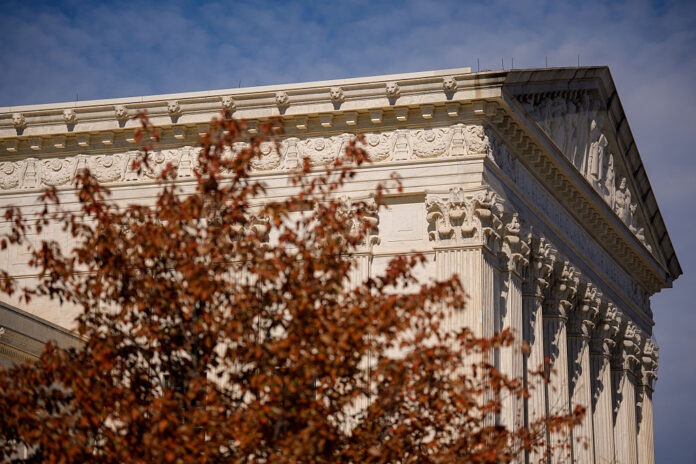If you want more cases about government contractors even after reading the argument earlier this week in Hencely v. Fluor Corporation, then The GEO Group v. Menocal, to be argued on Monday, Nov. 10, will be just the thing for you. The issue in GEO is whether a contractor facing a district court order that refuses to give the contractor immunity can appeal immediately instead of waiting for the end of proceedings in the trial court.
To give some context, as you may recall from the discussion of Hencely, government contractors often have a defense to suits challenging their activities if they can establish that their contract with the government required them to engage in the challenged conduct. In GEO, detainees at an ICE detention facility sued the contractor (GEO) contending that GEO’s operation of the facility involved forced, unpaid labor, violating various federal and state laws. After extensive briefing, the district court held that ICE’s arrangement with GEO did not protect it from the litigation.Â
Although the district court had not yet finished with the case – the detainees would still have to prove their case at a potential trial – GEO did not want to go to trial. So it appealed immediately, arguing that its claim of a defense based on its status as ICE’s contractor gave it a right to an immediate – “interlocutory†– appeal. When the appellate court refused to hear that appeal, the Supreme Court took up the case to decide whether contractors are entitled to that kind of immediate appeal.
GEO paints this as a standard immunity case, pointing to various areas in which government officials have a right to interlocutory appeal on the theory that the question of immunity is a “collateral order†(that is, it is separate from the primary cause of action) that can be appealed immediately without waiting for a final judgment from the trial court. For GEO, its “derivative sovereign immunity,†based on the company’s claim that it performed what the government contracted with it to do, should be no different. GEO argues vehemently that the costs and risks of a trial are so burdensome that it largely deprives GEO of the benefit of its defense if it has to wait to present this on appeal.
For their part, Alejandro Menocal (and the other detainees) contend that there is no such thing as “derivative sovereign immunity,†and that GEO’s claimed defense is no different from any other defense that a business might interpose in response to its allegedly unlawful conduct. There is no reason, the detainees argue, that the contractor can’t present that defense on appeal after a trial, just as it could present any other defense that the trial court rejected.
The answer to this case will come from the justices’ close reading of their cases about the extent to which a federal contract protects government contractors through the lens of the “collateral-order†doctrine. One tell-tale indicator is that even the government is unwilling to defend GEO’s right to an interlocutory appeal: rather, the government’s brief argues that the lower court reached the right result.
As far as tea-leaf reading goes, my impression is that the justices have been relatively skeptical in recent years about allowing interlocutory appeals under the collateral-order doctrine, so my guess is the contractor will face some tough questioning at the argument. In the end, it is hard to imagine a majority of the justices giving the contractor more protection than the government thinks the contractor needs.
Cases: The GEO Group, Inc. v. Menocal
Recommended Citation:
Ronald Mann,
Court to hear argument on ICE contractor’s right to immediate appeal,
SCOTUSblog (Nov. 6, 2025, 3:33 PM),
https://www.scotusblog.com/2025/11/court-to-hear-argument-on-ice-contractors-right-to-immediate-appeal/





